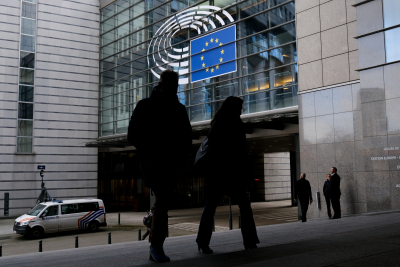Beside the big names of celebrities and politicians, such as Lewis Hamilton and Wilbur Ross, hiding their wealth offshore, which were included in the latest leak by the International Consortium of Investigative Journalists (ICIJ) – the Paradise Papers – this time focus has been the secrecy surrounding the corporate sector.
Many of the stories showed once again how large multinational corporations exploit the loopholes and discrepancies of different laws and tax systems, and consequently operate in a grey zone between what is legal and what is illegal.
One of the companies exposed was Nike. Leaked documents revealed how Nike has seemingly taken advantage of Dutch laws for over ten years in order to lower its tax bills. First, by using its Bermudan subsidiary to charge trademark royalty fees to its European headquarters in the Netherlands, and then shifting its European profits to the Caribbean secrecy jurisdiction. Then by transferring all of its trademarks to a new subsidiary in the Netherlands, making use of a Dutch ‘commanditaire vennootschaps’ or CV, which is a limited liability partnership.
According to the ICIJ, a Dutch CV that is owned by partners outside the Netherlands can be entirely stateless, and as a result taxless. Under the Dutch law, profits made by Nike through a CV are regarded as if they were made by their partners. Thus, these earnings have been made outside the Netherlands and cannot be taxed there. However, the USA, where Nike’s parent is located, see Dutch CVs like regular companies and regard the taxing rights as belonging to the Dutch. The result is that none of the two countries have collected Nike’s taxes for years.
These kind of ‘hybrid mismatches’, as they are called in technical jargon, have been recently addressed by the EU in its Anti-Tax Avoidance Directive (ATAD) and should cease to exist in 2020.
However, in the meantime these and many other complex structures used by multinationals will remain unknown to citizens. Last week, numerous debates around legality, illegality and morality of these tax avoidance schemes have been going on. We believe, however, that these discussions shift the focus away from the real problems at stake: a society with A- and B-class citizens where its wealthiest members are allowed to play by different rules avoiding scrutiny and accountability.
In order to stir the debate in a different direction, for the time being we are not calling for stricter tax codes or bans of tax havens, but for full transparency over what large corporations pay in taxes and where they pay it. This would also shed a light on special arrangements they may have with European governments, such as the one between Nike and the Netherlands.
At Transparency International EU we believe that this is clearly in the public interest. Only with full transparency will citizens be able to choose, as consumers of companies’ products and as voters of their own governments.
The EU currently has a draft legislation on the negotiation table that, if adopted, would provide precisely that transparency tool European citizens expect from their elected representatives. What is known as public country-by-country reporting (CBCR). However, despite the scandals and the debates, several governments are still doing all they can to prevent tax transparency from becoming a reality, and among them, beside the usual suspects of financial secrecy, big Member States and supposed transparency champions, such as Germany and Sweden.
Opening up multinationals’ tax affairs would be a small and simple step in comparison to changing complex tax rules. A chance the EU has to grab if it wishes to reassert its leadership and legitimacy among European citizens.
Our ask is not for governments to outlaw tax avoidance nor are we accusing companies to carry out illegal practices, but judging by how fiercely they have been lobbying against tax transparency rules, they may be the first ones doubting that their actions are fully clean.




